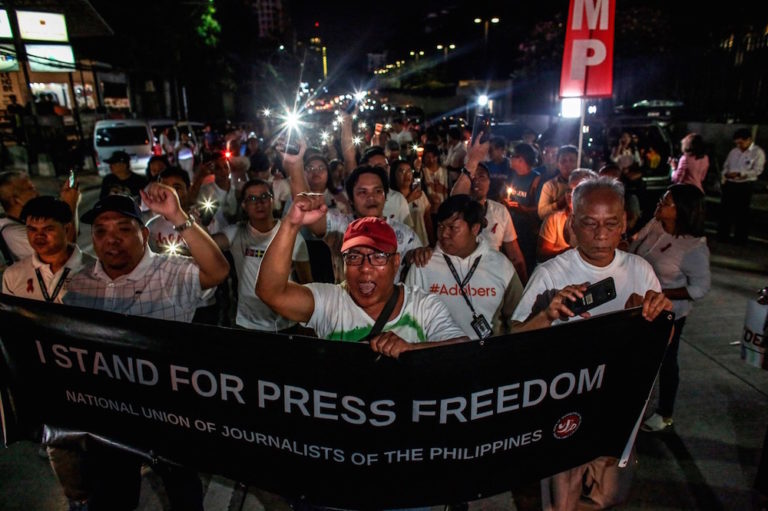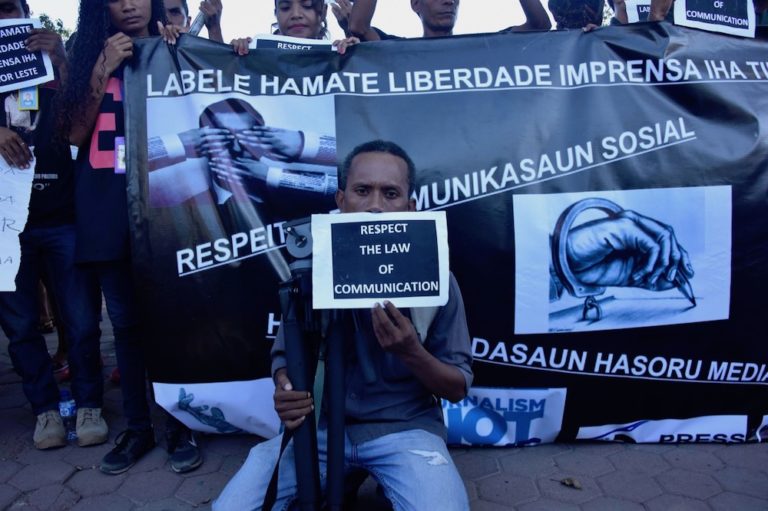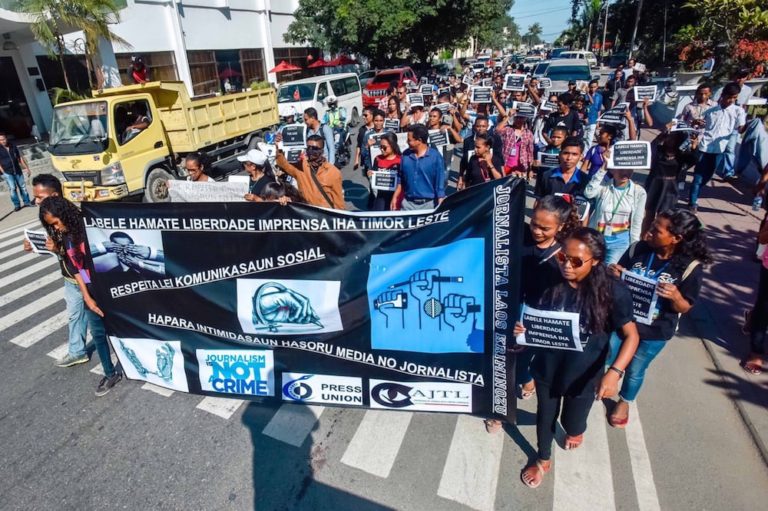(IPI/IFEX) – The following is an IPI letter to East Timorese President H.E. Kay Rala Xanana Gusmao: H.E. Kay Rala Xanana Gusmao President of Timor-Leste C/o Embassy of Timor-Leste to the United States of America 4201 Massachusetts Avenue NW Washington, D.C 20008 USA Fax: 202 966 3205 Vienna, 12 January 2006 Your Excellency, The International […]
(IPI/IFEX) – The following is an IPI letter to East Timorese President H.E. Kay Rala Xanana Gusmao:
H.E. Kay Rala Xanana Gusmao
President of Timor-Leste
C/o Embassy of Timor-Leste
to the United States of America
4201 Massachusetts Avenue NW
Washington, D.C 20008
USA
Fax: 202 966 3205
Vienna, 12 January 2006
Your Excellency,
The International Press Institute (IPI), the global network of editors, leading journalists and media executives, is writing to express its concern about plans to introduce a new penal code for East Timor containing harsh criminal penalties for individuals found guilty of defamation.
According to information provided to IPI, the Ministry of Justice originally drafted the new penal code and, on 6 December 2005, the Prime Minister, Mari bim Alkatiri, signed an executive decree approving the proposed law. We understand that the new penal code is waiting to be signed into law by Your Excellency.
The new penal code contains several harsh sections that will have a detrimental impact on journalism within East Timor. Under Article 173, individuals face three years’ imprisonment for defaming public officials, and the code contains no limits on fines.
Moreover, Article 176 doubles the term of imprisonment, from one year to two, where the defamation was committed through the media. Where the defamation is both through the media and committed against individuals performing “public, religious or political duties,” the term of imprisonment is increased to three years.
In the opinion of IPI, the new articles on criminal defamation will stifle journalism and the free flow of information in East Timor. As a result of the new articles, journalists will be encouraged to practice self-censorship out of fear that they will be imprisoned for their writing.
The articles also provide politicians with unnecessary protection at a time when international standards, and international case law, acknowledge that they should accept less protection and not more. IPI would also respectfully remind Your Excellency that, perhaps more than any other group in society, politicians have numerous opportunities through the media and in parliament to rebut negative statements.
At a media conference discussing defamation, held in the capital Dili on 26 August 2003, Your Excellency gave a speech in which you reflected on whether the laws being applied in East Timor were “in conformity with the highest norms of human rights prescribed in our constitution and that are found in the human rights treaties that we signed.”
On the subject of the Indonesian Criminal Code, containing several articles suppressing the media, Your Excellency alluded to articles “pertaining to criticisms against individuals occupying certain government positions.” When discussing them, Your Excellency commented that these articles “override the spirit of scrutiny and criticism.”
IPI would argue that the same might also be said of the new penal code and that, in seeking to replace the Indonesian Penal Code, the East Timorese government is merely replacing one repressive law with another.
Your Excellency, IPI believes that the new penal code represents a threat to freedom of the press and freedom of expression in East Timor. With this in mind, we call upon you to refuse to sign the new penal code until those articles related to criminal defamation are removed.
We thank you for your attention.
Yours sincerely,
Johann P. Fritz
Director
RECOMMENDED ACTION:
Similar appeals can be sent to:
H.E. Kay Rala Xanana Gusmao
President of Timor-Leste
C/o Embassy of Timor-Leste
to the United States of America
4201 Massachusetts Avenue NW
Washington, D.C 20008
USA
Fax: 202 966 3205
Please copy appeals to the source if possible.


